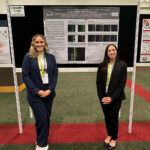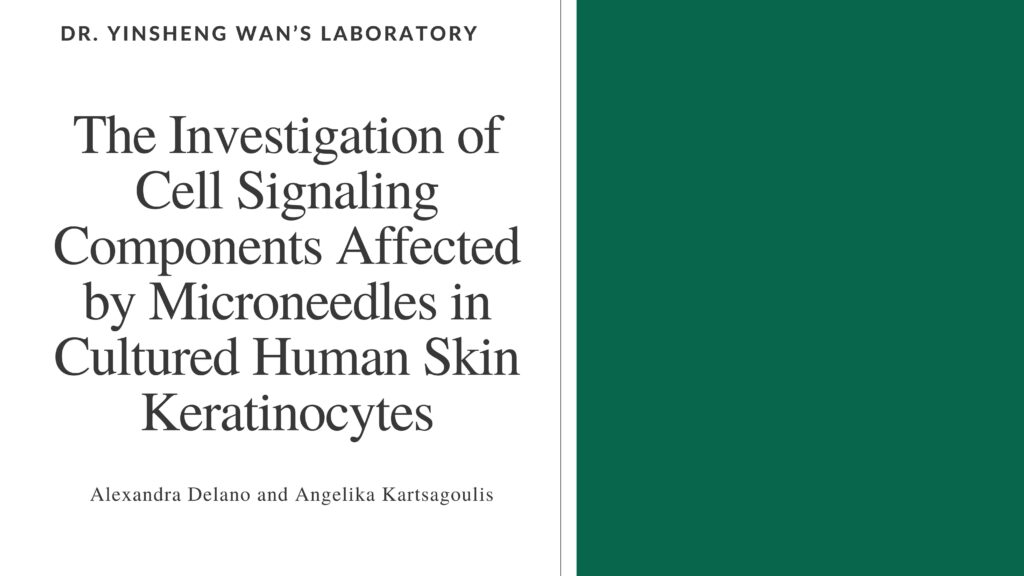Investigation of cell signaling components affected by microneedles incultured human skin keratinocytes

Investigation of cell signaling components affected by microneedles in
cultured human skin keratinocytes
Alexandra Delano ’25, Biology major
Angelika Kartsagoulis ’25, Biology major
Faculty Mentor: Dr. Yinsheng Wan, Biology
Oral Presentation: Wednesday, April 24, 12:30 p.m.
Microneedles have been applied to deliver genes, drugs, and vaccines through human skin for more than two decades, mainly because microneedles remarkably increase the skin permeability of those agents. Most recently, microneedles have been in vogue in cosmetics on the premise that microneedles may rejuvenate skin cells. Studies have demonstrated that repeated application of microneedles does not alter skin appearance or barrier function, suggesting the safety of this fashionable cosmetics approach. While microneedles are applied with successful effects, there are only a few reports on the cellular and molecular mechanisms through which microneedles affect skin cells. Without understanding the mechanism behind microneedling, over-usage may lead to skin cancer or other diseases. The objectives of this study are 1) to study the cytoskeletal and mitochondrial proteins, 2) to investigate autophagy-related pathways, 3) to study chromatin remodeling and its associated proteins, and 4) to investigate the expression of specific genes via RNA sequencing. Our results demonstrate that microneedles alter cytoskeleton structure, induce nuclear translocation of autophagy related proteins ATG-5 and ATG-12, phosphorylation increase of Histone-3, and downregulate growth related genes such as SMAD6 and CHCHD10.






